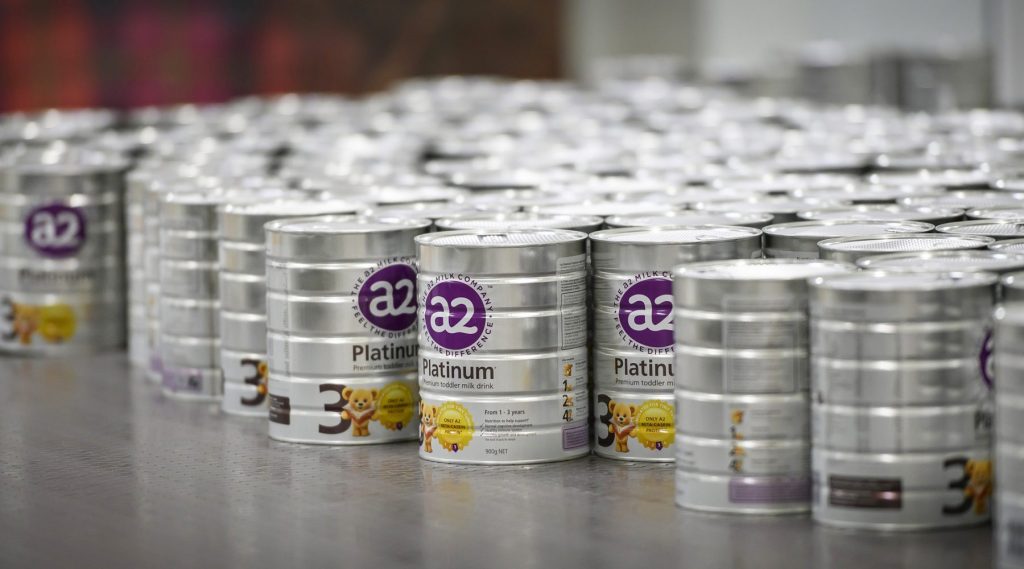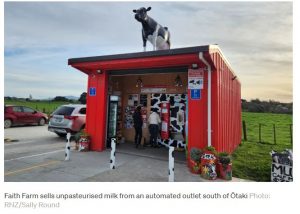
Sales from the “daigou” channel, where shoppers in China buy products in bulk from stores outside the country and import them informally, account for a significant portion of the dairy firm’s infant milk formula (IMF) revenue in Australia and New Zealand.
The Auckland-based company said it already had been experiencing disruptions to its daigou network due to low Chinese tourist and international student numbers, and it now expected difficulties to continue through the first half of fiscal 2021.
The company forecast revenue between NZ$725 million ($474.95 million) and NZ$775 million for the six-months ended December 2020, compared with NZ$806.7 million reported a year ago.
Shares of a2 Milk plunged as much as 14.9% after the announcement, its worst daily performance since Aug. 21, 2019.
“The extended lockdowns in Victoria combined with less tourists and less students throughout the country has meant an increase in inventory and less demand,” said Jeremy Sullivan, investment adviser at Christchurch-based advisor firm Hamilton Hindin Greene.
The company said it believed weak daigou trading to be a short-term logistics issue.
It added that demand for its IMF brand in China was still solid and expected full-year revenue between NZ$1.80 billion and NZ$1.90 billion, higher than last year’s figure of NZ$1.73 billion but still below Refinitiv estimates of NZ$2.07 billion.
“Whilst revenues are growing year on year, a trend I think will continue, this miss is material and the market is acting in kind,” Sullivan said.
Meanwhile, shares of Synlait Milk SML.NZ, which is partly owned by a2 Milk and also depends on daigou shoppers for its sales, were down about 6%.
Reporting by Arundhati Dutta and Anushka Trivedi in Bengaluru; Editing by Peter Cooney and Stephen Coates.

























